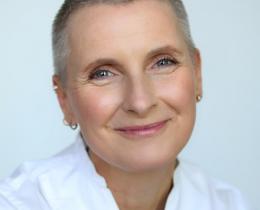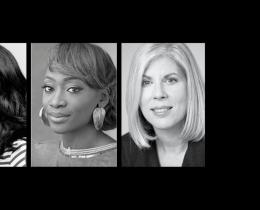Omega: You have a very disciplined approach to your writing, but your meditation practice has ebbed and flowed. What is the growing edge in your spiritual practice?
Elizabeth: I keep trying. I really do. I kind of feel like the smoker who has quit 90 times, but I have optimism that one of these days I'm going to get it.
I just recently started a meditation practice again and just recently stopped it again. And I'll probably start it again and stop it again. I know that nothing would be better for everything that ails me from physical to mental to psychological to spiritual angst. I simply have not yet, and I'm saying yet optimistically, been able to create a consistent meditation practice. I just keep letting myself off the hook on that.
I can very easily say that I don't meditate because writing is my spiritual practice, or stubborn gladness is my spiritual practice, or my marriage is my spiritual practice. That said, I know it would be a good thing for me every once in awhile to shut up and sit still and not be in constant movement. When I do get it I think, “Oh, this is so good for me. I'm going to do this forever.” And then Tuesday comes. Maybe it's just God keeping me real. That's my edge.
Omega: How does that relate to your personal life?
Elizabeth: It's evidence of why we all need each other because none of us can do all things well. I talk about this with my best friend Rayya. It's fundamental to our friendship—there are things that are really important to each of us that the other does not do well. She's able to handle a certain interpersonal communication and confrontation with a grace and ease that I would give anything to have because the greatest source of suffering in my life are conflicts with people where I just don't know how to resolve it. I don't know how to choose between being honest and being kind, and being honest and protecting myself. Literally, the only thing I can think of to do is to change my e-mail address and get a new passport. I've gotten slightly better, but it's difficult. She'll coach me through, “You're going to have to sit down and write that e-mail. You're going to have to respond when they respond. You're going to have to listen to their side of it.”
For me, creativity is a picnic, relatively. I don't have an emotionally complicated relationship with it—it's not easy but it's simple. She'll call me in distress and I'll be able to coach her and say, “Think about it this way, look at it here. Try again. Go back in. You're doing great. It's no problem.” We all have these shadow corners of ourselves that we haven't yet developed and the fun part is that we are an evolution and that we need each other.
Together we make a sort of whole person. That's always the dream of romantic intimacy—that two will make one. But there's so much that you project that comes from shadowed places of yourself, or that other person, that it doesn't always work. I think it's more like hundreds will become one. Collectively we share each other's experiences, we shore each other up, we give each other inspiration, and we offer strength. And hopefully, we all move forward.
Omega: You say that life actually begins at 50 and aging is the best thing that happens to women. As you mature, what do courage and trust mean to you?
Elizabeth:There's a lovely line that I need to find from Women Who Run With Wolves, "Around middle age, every woman will have to make a decision about whether she's going to become a bitter person or not." If you've lived for five decades, you've been around. People have betrayed you, people have disappointed you, you have betrayed and disappointed yourself. There's no way to get to that age without having sh***y things happen. At that point it does become a decision, “Okay, am I going to become bitter or am I going to become amazing? Am I going to turn this into wisdom, into grace? Am I going to turn this into light? Or am I going to just say it didn't work? My life didn't work and bad things happened. Terrible people did horrible things to me.”
We all know people who signed up for that, “I'm done and now I'm going to live out the rest of my life just waiting to die unhappy.” They have a full docket of evidence as to why they're allowed to do that and you can't debate that evidence because truly horrible things have happened to them. But look around, truly horrible things are happening to everybody. That's the decision. You have to make it in middle age and it will have to be from you. Nobody can do it for you, nobody can talk you out of bitterness, and nobody can talk you into grace. It's really the ultimate turning point. If you choose the light then the second half of your life is remarkable because you have an innocence that isn't innocent. You have a light that has some weight behind it because you actually know how bad the world can be and you chose grace.




